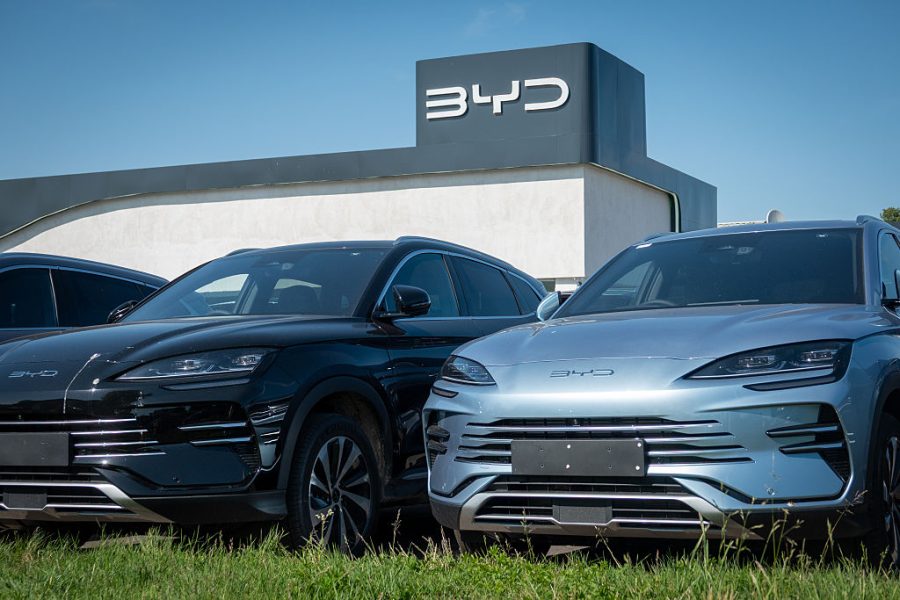This week the British government introduced subsidies for electric vehicles (EVs). But as they have failed to first adopt sensible trade defence measures, this risks Chinese EVs flooding the UK, bringing job losses and data security risks in their wake.
Rather than following the example of the US and the European Union, which have adopted tariffs against Chinese EVs to protect automotive jobs, the UK will roll out subsidies for EVs. Each vehicle that qualifies as having a low enough level of carbon emissions in its production will be granted a subsidy of either £1,500 or £3,750. Ministers have so far refused to publish a list of manufacturers who will be eligible, instead opting to retroactively share this information once they are approved.
Keir Starmer’s government should take data security seriously
Given that Chinese automaker BYD is now the largest EV manufacturer in the world and the British car firm MG belongs to the Chinese state-owned automaker SAIC, it is highly likely that Chinese EVs will qualify for these subsidies. Unless, that is, the government adopts a policy to explicitly exclude them.
The problem for the government is this approach would result in the supply of Chinese EVs outstripping demand and cannibalising the existing domestic automotive industry. Turkey, Brazil, and Thailand have all previously adopted EV subsidies in the form of direct grants or tax breaks without tariffs and soon found themselves inundated with Chinese EVs as Beijing seeks to export its way back to economic growth.
In the case of Thailand, its domestic production of vehicles dropped in January 2025 by nearly 25 per cent year on year and Chinese promises of transferring EV battery technology have yet to materialise for its auto sector, which has faced a 33 month-long dip. Meanwhile, Chinese EV imports are forecast to grow by 40 per cent in Brazil this year, as producers take advantage of toll-free imports ahead of planned EV tariff increases next year.
Back in Britain, the government’s announcement on EV subsidies must also be considered in the context of the ongoing rumours that Chinese automaker Chery Auto is considering opening a plant in the UK and Nissan’s Chinese joint-venture partner Dong Feng may begin producing vehicles at its plant in Sunderland. These rumours, if true, may serve as a misguided attempt by the government to encourage investment from one Chinese automaker that is making record profits selling its cars in Russia and another that provides military vehicles to the People’s Liberation Army.
Wrapped up in the government’s central mission of growth at all costs, EV subsidies may seem like a pragmatic move on paper. But if the warnings from other automotive markets are to be heeded, they will merely hasten the collapse of the UK’s historic automotive sector. The industry is already on its last legs: last year, 1,900 job losses were recorded, while this week alone saw Jaguar Land Rover announce a further 500 across the country.
Perhaps just as puzzling is the lack of interest the government has so far shown in responding to the growing data security concerns that have been raised by parliamentarians regarding Chinese EVs. The Ministry of Defence has reportedly banned Chinese EVs from UK military bases, while British defence contractors, including those working for Thales, Lockheed Martin, BAE Systems, Raytheon, and Rolls Royce, have been advised not to park Chinese EVs at work, talk about company business in them, or use them to charge their mobile phones.
A Norwegian cybersecurity researcher Tor Indstøy, who has been studying the Chinese EV he bought to use as his family car since July 2023, has found that around 90 per cent of its communications data – including voice commands and physical location – are being sent back to China. This evidence of allegedly poor data security led the Biden administration and now the Trump administration in the US to introduce legislation that would ban the import of EVs that use Chinese software.
Given these recent developments, Keir Starmer’s government should take data security seriously. They must enshrine a requirement in their EV subsidies regulations that manufacturers who benefit from taxpayer subsidies must store customer data on trusted cloud storage providers in the UK and use non-Chinese cellular internet of things modules (CIMs) – which allow EVs to connect to cellular networks and facilitate communication – in their production.
More broadly, the UK should be protecting its economic security and domestic automotive sector by introducing tariffs on Chinese EVs. They should also ensure that those automotive producers who qualify for the new subsidies meet strict local content requirements. Such an approach would be in line with our closest partners in North America and the European Union. But more importantly, it is the only way to guarantee that the UK will continue to produce cars and benefit economically from the green transition.
The alternative would be to replace the UK’s dependency on Russian oil and gas with a dependency on Chinese green technology. Beijing’s decision last month to impose export controls on critical minerals as a form of global economic blackmail demonstrates why such dependencies are perilous.







Comments